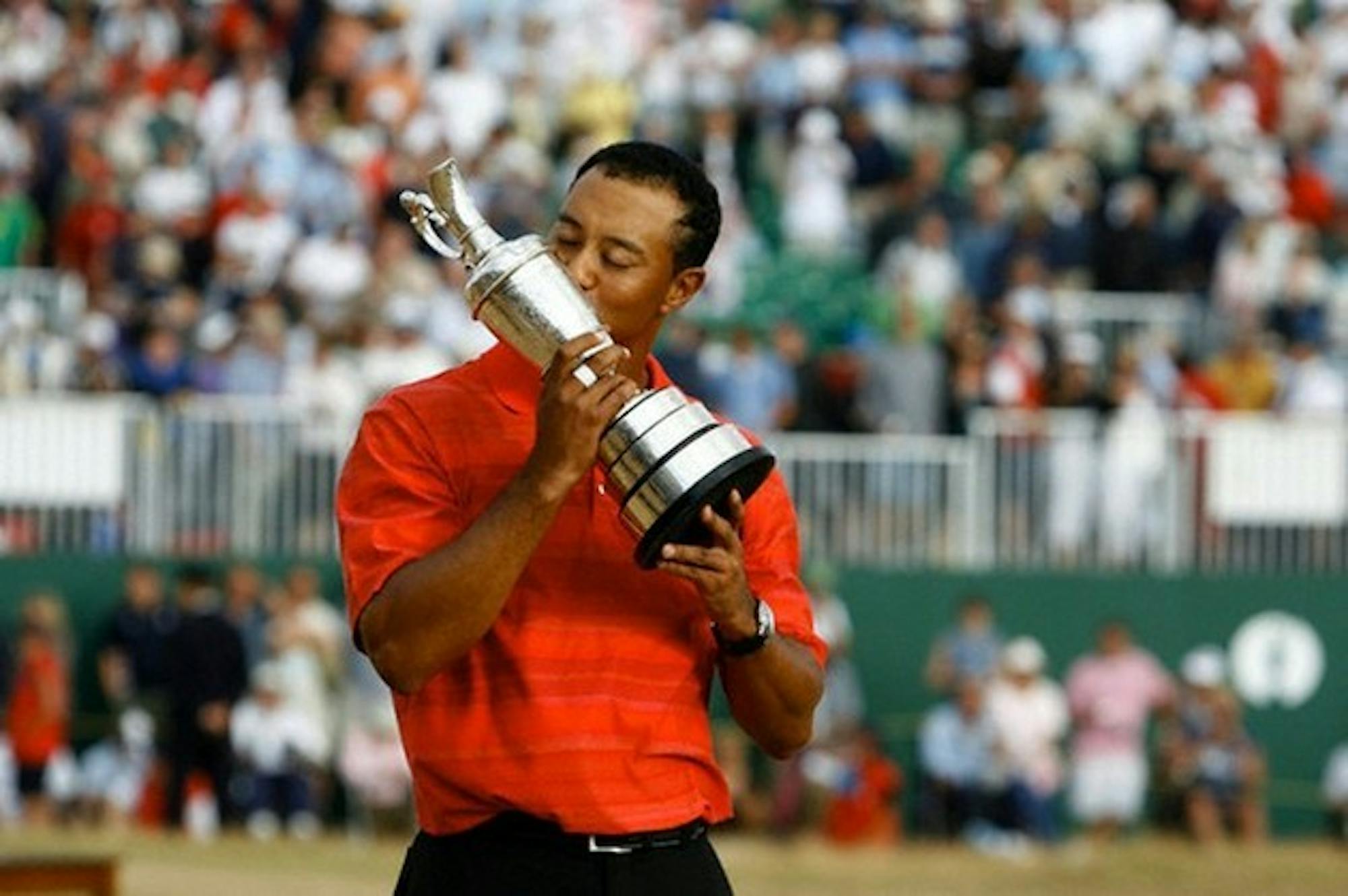Coming on the heels of a forgettable finish by the U.S. soccer team in Germany, Woods and Landis are a reminder of our continued dominance in the world of sports. In 2004, much ink was spilled over the failure of the American men's basketball team at the Athens Olympics. Unable to win basketball gold, Americans felt threatened by their inability to emerge victorious in a sport we call our own.
Likewise, the U.S. went into the 2006 World Cup with high hopes of breaking through in a sport in which the country has never excelled. Yet the country's unreasonable desire to dominate every sport overshadows just how dominant the U.S. remains.
At Royal Liverpool, Woods captured his second straight British Open victory, giving him eleven overall professional majors. The greatest golfer of this generation continued the U.S.'s stranglehold over golf's oldest championship, with the eleventh American victory in the past thirteen tries.
A short hop over the English Channel, Landis overcame premature proclamations of victory and an arthritic hip, which will soon require surgery, to provide one of the more gritty performances in Tour de France history. Though difficult to follow in Lance Armstrong's footsteps, Landis' victory announced to the world that American cyclists will be a fixture in a sport Europeans proudly claimed as theirs. His impressive win made for the eighth straight American champion in the Tour -- the first seven being Armstrong's -- and the eleventh American win since 1986.
Now before this piece becomes another reason for foreigners to despise the U.S., my point is not that we're the best at every sport we compete in; clearly, that is not the case. Even in sports that Americans traditionally dominate, such as basketball and baseball, foreign stars have demonstrated that they can compete with the best the U.S. has to offer. Nevertheless, no other country rivals the U.S.'s place as a sports powerhouse.
The U.S. is more than just the world's lone military and economic superpower -- it is also the world's only sports superpower. In overall Olympic competition the U.S. has 2407 medals, nearly double the total of the next closest country. So why do Americans become so enraged at the failure to win a gold medal in a particular sport when we win so many others?
As a country, we may have become overly greedy, or perhaps the same competitive edge that has led to countless American victories causes us to dwell on the slightest of defeats. Either way, the evidence of the U.S.'s dominance is irrefutable, and the accomplishments of a golfer in England and a cyclist in France only further support this claim.
Regardless, while a hunger to succeed in every competition is admirable, there is no need for Americans to lament each defeat -- American soccer will have a breakthrough eventually, and American basketball remains the world power.
We should be happy with our sports dominance, though perhaps it is best to never be content. And to the rest of the world, there is no reason to be envious and bitter, for you too will find more sports glory in the future. But if not, you'll always have cricket.




